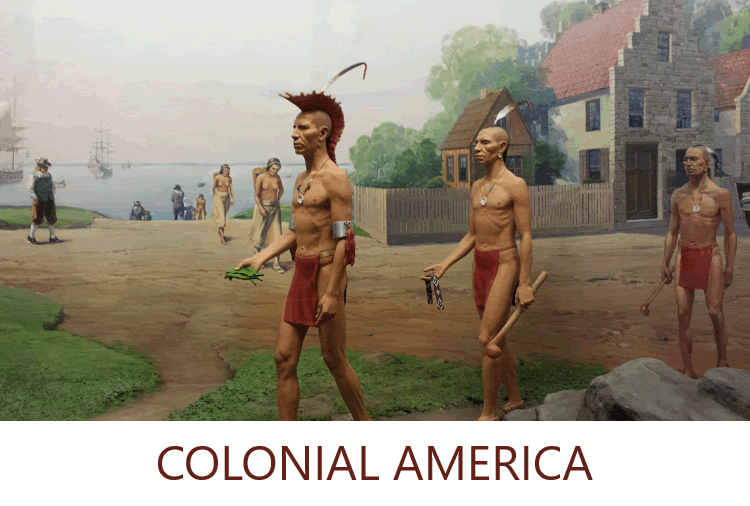 The colonial period in United States history refers to the time when European powers, primarily the English, Spanish, Dutch, and French, established colonies in North America. This period spans from the early 17th century to the late 18th century and played a pivotal role in shaping the future United States. Here is an overview of the colonial period. The colonial period in United States history refers to the time when European powers, primarily the English, Spanish, Dutch, and French, established colonies in North America. This period spans from the early 17th century to the late 18th century and played a pivotal role in shaping the future United States. Here is an overview of the colonial period.
Early European Colonization:
- Spanish Colonization: The Spanish were the first Europeans to establish permanent colonies in the Americas. They settled in areas that are now part of the southwestern United States, Florida, and California. The most famous Spanish colony was St. Augustine, founded in 1565 in present-day Florida.
- English Colonization: English colonization began with the founding of the Jamestown colony in Virginia in 1607. This marked the beginning of the English presence in North America. Subsequent colonies, including Plymouth (1620) and Massachusetts Bay (1630), were established for religious, economic, and political reasons.
- Dutch and French Colonization: The Dutch established New Netherland in the Hudson River Valley (present-day New York) and the French founded colonies in the Mississippi River Valley (including Louisiana) and Canada.
Colonial Life and Society:
- Economy: Colonies had diverse economies, including agriculture, trade, and fishing. The southern colonies, such as Virginia and the Carolinas, relied heavily on cash crops like tobacco and rice. The New England colonies focused on fishing, trade, and small-scale farming.
- Religion: Religion played a significant role in the lives of many colonists. While New England was characterized by Puritan religious communities, other colonies, like Pennsylvania, were founded on principles of religious tolerance.
- Government: Colonial governments varied by region. Many colonies had elected assemblies, but the degree of self-governance differed. The Massachusetts Bay Colony, for example, had a strong tradition of self-rule, while proprietary colonies like Maryland were governed more directly by proprietors.
- Slavery: The institution of slavery began to take root in the southern colonies, particularly as the demand for labor in agriculture grew, though slavery existed in the northern colonies as well. African slaves were forcibly brought to the colonies and played a crucial role in the development of the plantation system.
- Interaction with Native Americans: Colonial relationships with Native American tribes ranged from cooperation and trade to conflict and displacement. The fur trade was a significant economic driver in the northern colonies, leading to alliances with certain tribes.
Colonial Conflicts and Wars:
- King Philip's War (1675-1676): This conflict between New England colonists and Native American tribes, primarily the Wampanoag, was one of the deadliest wars in colonial history.
- French and Indian War (1754-1763): This global conflict between Great Britain and France, with American colonies involved, resulted in British victory. It led to increased tensions between the colonies and the British government.
The colonial period in U.S. history laid the foundation for the nation's democratic principles, diverse cultural influences, and enduring struggles for liberty and equality. It also set the stage for the formation of the United States as a sovereign nation and the drafting of the U.S. Constitution in 1787.
|

 The colonial period in United States history refers to the time when European powers, primarily the English, Spanish, Dutch, and French, established colonies in North America. This period spans from the early 17th century to the late 18th century and played a pivotal role in shaping the future United States. Here is an overview of the colonial period.
The colonial period in United States history refers to the time when European powers, primarily the English, Spanish, Dutch, and French, established colonies in North America. This period spans from the early 17th century to the late 18th century and played a pivotal role in shaping the future United States. Here is an overview of the colonial period.







